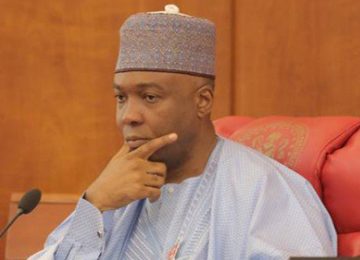Reflections Without Mirror: Oke’badan High School.
Today, the 9th of December, is the AGM of my alma mater , I therefore dedicate this piece to our founder and all former and present students of Oke badan High School. Today is a day that we are also welcoming back home, our indefatigable warrior, Major General Adeyemi Alabi (retd). He retired from the military this year (2023) after a successful career and a meritorous service to motherland, a career without blemish. We say Uplander Adeyemi welcome home!!!.
Wasiu Abiola, my good friend, my classmate, and one of our prides in the school will also receive an award for the good work and his contributions towards the progress of the school. Wasiu Abiola is a giver and a philantrophist. There is no one who seeks for his help that Wasiu would ignore. There is no one who is in need that would come to Wasiu’s attention that he will not put a smile into his face Many people have asked me whether he is related to late MKO Abiola and I said no. MKO was from Abeokuta while our own Wasiu is from Ibadan but they both have a common ground. They are both givers and helpers of men. MKO is dead and our own Wasiu is alive and he is flying the flag higher. What a great day to appreciate such a lovely good man.May God honour him with long life and continue to be prosperous.
Oke ‘badan High School
The founder and proprietor of our great school, the Oke’badan High School, Pa Emmanuel Adebayo Adeyemo once told us that he initially had it in mind to name our school ‘ Lagelu High School’. However, before he could announce the proposed name- due to some problems of logistics – a group of people had come together to establish what became the Lagelu Grammar School. That was in 1958. Lagelu Grammar School was founded by the defunct Ibadan District Council. Mr. Ayo Labiyi, one of the founders of the school became its first Principal. Oke’badan was later established in 1960 and solely by Mr Emmanuel Adebayo Adeyemo. It should be remarked that the Late Adeyemo was not deterred that the name he had in mind for the school had been inadvertently hijacked by powerful thinkers and visionary leaders. He and those who established Lagelu carried the same idea within them without discussing it together, but one visionary acted faster and put their thoughts into reality.
Pa Adeyemo was a man of vision. He thought up another wonderful name that was original and indigenous, rather than a foreign one. He quickly thought of naming the school as Oke’ badan High School. It is a meaningful and powerful name with a clear understanding of the reasons behind it. People called the name Oke’ badan but many were not aware of what it stood for and the roles it played in the survival of Ibadan.
Lagelu founded Ibadan. But without the Oke’badan (the Ibadan hill), Lagelu and his relatives could have been wiped out. The significance of Oke’ badan and the survival of the emerging Ibadan settlement depended on that hill. The crisis that nearly wiped out one of the famous and one of the largest cities in the world in the 15th century drove the remnants to hide on the hill. There are seven hills in Ibadan. But Oke’ badan surpassed them all. For instance, none of the other hills bear the name of ‘Ibadan’ behind the ‘Oke’. Why do we have Oke’badan carnival every year and not even Lagelu Carnival? Our indefatigable founder could not have chosen a better name. Despite all the perennial issues that threatened the foundation of our school, some of which could have led to its closure, yet we survived the crisis and it became a household in Ibadan. I have given the history of Oke badan in my previous book, Balogun ODERINLO in Yoruba History. I will now proceed to cull from it as I believe all our students, (ex or current) and others should know about it. I start from Page 47 of the book: “However, before the town (Ibadan) celebrated its centenary, disaster befell the town. It was a small thing that led to the destruction. It was during an Egungun festival. The Egungun (Masquerade) was highly revered in Yorubaland. It was a festival celebrated annually . It was generally believed that Egunguns were visiting ancestors from heaven and were not members of the human community. They were, therefore, treated with respect and deference. The Egungun’s face must be covered with mask or cloth. Their eyes must not be seen, they do not speak like ordinary mortals and have their own specially trained voice to address the people. They were worshipped. It was only the initiates that knew the highly guarded secret of Egungun. On this fateful day during the Egungun festival, one of the Egungun lost his mask, his face was uncovered, and his face was seen by everybody including women and children. The great secret was known. This was a sacrilege. It was a taboo for the face of Egungun to be seen by the non-initiates and the matter was reported to Alaafin Sango. Alaafin Sango was a descendant of Oranyan and the great grandchild of Oduduwa. He was a no- nonsense and a fearful king. It was believed that when he is angry, fire comes out of his mouth, and he fights with thunder. A fiery King, his mother was from Tapa (Nupeland).
One of Sango’s weaknesses was his uncontrollable anger, and this eventually led to his ruin. He had summoned other Yoruba crowned heads and informed them that the Ibadan people had committed sacrilege and there was no other alternative than to go to war against them and destroy the territory . This was arbitrary and the reason for the total annihilation of Ibadan was uncalled for. This was a matter that should have been resolved and perhaps some lesser punishments imposed. Nevertheless, the decision to destroy Ibadan had been reached and the needed regiment to do this was soon gathered. Lagelu was advanced in age but remained one of the best fighters in all Yorubaland at the time. He was highly experienced in the art of war. He mustered his own army to prepare to defend the city .
Alaafin Sango led the Army of the confederates of other Yoruba Kings while Lagelu led his small but courageous Army of Ibadan people. Although the Ibadan were no match for the confederates, but they fought gallantly. Lagelu divided his army into Four Divisions . He led the First Division and put his best and trusted commanders at the head of each division. Women and children were hidden behind the hills. The Fourth division was to protect the women and the children in case their line was breached.
The battle was fierce and many times the soldiers of Ibadan repelled and drove the confederates back. The Ibadan warriors defended the city and fought for over three years. They lost many of their brave warriors and the war could not be sustained any longer. Hunger also set in. The Ibadan were known to have consumed almost everything available. Ultimately, the Ibadan were scattered and lost the battle. The slaughter of men, women and children was considerably high . Lagelu and some of his children and relatives survived the war and escaped into the bush. They settled in the bush and on his way to Awotan, Lagelu lifted his staff and struck the earth thrice, many pigeons came out , no one knew whither they came from. That was why the place was called Eleyele till today. It was on the Awotan Hill that they found the Oro ( Bush mango or Irvigingia gabonensis) tree that provided the escapees with fruit to eat and plenty of snails available around to eat. That is why the Ibadan are eulogised as Ibadan Omo Ajorosun, Omo ajegbinyo, Omo afikarawun forimu. ( Literally, Ibadan the offspring of those who eat Oro before going to bed; offspring of those who eat snails and satiated with it; and the offspring of those who used snails to drink pap).
However, the first Ibadan was ultimately destroyed by the Confederate army of the crowned Kings of Yorubaland under Alaafin Sango also known as Olufiran. Those that escaped with Lagelu were about fifteen in number including Labosinde his brother. They stayed in the forest and dared not show their faces in daytime. They were surrounded by enemies, but they quickly organised themselves and resorted to Guerrilla warfare. They came out at night and harrased the neighbouring villages and towns and retreated to their forest at night. They used the hills in the forest as their shields and dwelled there. They continued to subsist on snails and Oro. These remnants of Ibadan inflicted substantial damage on the neighbouring towns. When the pressure was too much from these small guerrilla fighters of Ibadan, the neighbouring towns came to make peace with them. The ways and courage of this little army enhanced the success and their survival. Kings like Alake Agura and others made peace with them and allowed Ibadans to marry their daughters . That was the beginning of the Second Ibadan.
The second Ibadan began to flourish, and the population started multiplying . Many people and other towns and villages came to join them. The Lagelu group continued to stay in the hills where Legend has it that they met a spirit in the form of a woman with big breasts. She appeared to be dwelling in and was in control of the hills . The spirit assured them of safety and told them they will become prosperous again . That was the time that brave warriors from other towns and villages started moving to Ibadan. When Lagelu observed that the population was strong enough to withstand any foes he ordered all of them to move to the plains and a new city was built. A market was built, and a place of worship was constructed that was dedicated to the Spirit of the Hills that helped them in the time of their trial . This is what is known as Oke’badan and her designated priest is known as Aboke till today.
For those who have read part 1 of this piece, we have seen the significant roles that Oke’ badan played in the survival of Lagelu and Ibadan. As a matter of fact, Lagelu was buried at Oke’ badan when he died. Oke’badan can, therefore, be described as the guardian angel of Ibadan. This was the highly venerated name chosen by our founder , the legendary and fearless man, the Late Pa Adeyemo. I have often wondered why our school Oke’ badan had always been living in peace with Lagelu Grammar School as opposed to Loyola College and other schools that we fought with quite often. Now, we can see the historical and spiritual connections between Lagelu and Oke’badan. Names in Yorubaland have meanings and are very significant. Yoruba people do not just give names. They investigate circumstances before giving names to anything. Incidentally the two schools are close to each other. We have fought against many schools except for Lagelu Grammar School as far as my memory allows me and I have spoken to my seniors as well and they confirmed the same thing. Oke’badan is there to protect Lagelu. I salute the wisdom of our founder, Late Adeyemo. May his soul rest in peace and I dedicate this piece to his memory. Sweet is the memory of the righteous. Up Oke’badan!!!




